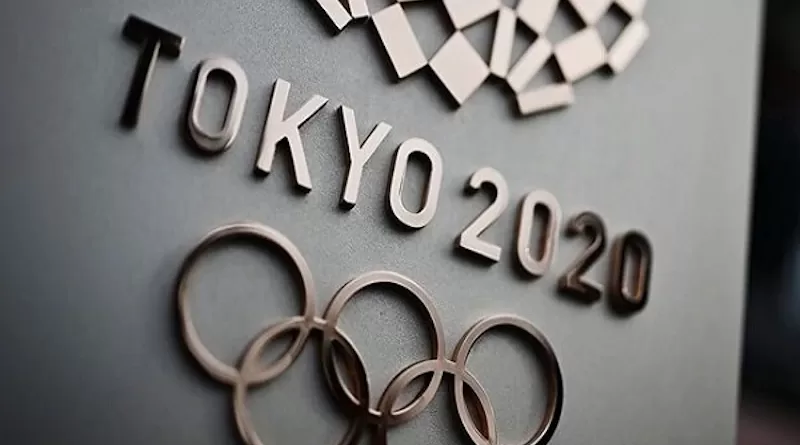Olympic Afterthoughts – OpEd
In line with its cultural and geopolitical biases, Western mass media has selective blinders, when it comes to criticizing the International Olympic Committee (IOC). Within this prism, the IOC’s meddling with the Belarusian athletics (track & field) staff and stated investigation of Russian state TV is quite okay.
The latter matter concerns derisive comments made about some Western LGBTQ athletes. In comparison, there’s no great call to investigate the (rhetorically put) US state sponsored likes of Travis Tygart and Lilly King, making misleadingly negative remarks against Russian athletes.
The aforementioned Belarusian situation involves the treatment of a disgruntled sprinter Krystsina Tsimanouskaya, who openly complained about getting selected for a relay team – followed by her being ordered home. Thereafter, she claimed political suppression, which made her the lead world headline (not just sports) on the BBC, for at least a full day, if not more.
Prior to Tsimanouskaya being ordered home, her complaint was over a coaching decision, along with an assertion that Belarusian athletics isn’t well managed. There’re numerous coaches the world over, who wouldn’t take kindly to such manner – arguing that she was hindering the morale of the team.
Meantime, how many Belarusian Olympic athletes showed solidarity for Tsimanouskaya? How many of them fled Belarus? Belarus having some clear human rights problems doesn’t by default make her into a genuine political dissident.
I’m reminded of the balderdash written about Artemii Panarin, supposedly being threatened by the Russian government for his political views. To date, there has been no such scenario. Since Panarin’s stated political comments, the greatest threat to him seems to have occurred when he was crudely body checked during an NHL game, in the US by a non-Russian player.
You Olympic historians out there will recall German long jumper Lutz Long, congratulating Jesse Owens after their competition at the 1936 Berlin Summer Olympics. Apparently, Long didn’t face any reprisal from the Nazi government.
In the spirit of sportsmanship, Ukraine’s Tokyo Olympic bronze medal winning high jumper Yaroslava Mahuchikh, hugged her Russian rival, Mariya Lasitskene, who won gold. That scene was a bit too much for the extreme nationalists with ties to the Kiev regime, who’ve openly criticized Mahuchikh. This criticism relates to the many Ukrainian citizens, who’ve close family and friends in Russia, while not having an anti-Russian outlook. Any IOC investigation on this particular?
At Tokyo, the all around individual rhythmic gymnastics competition, saw an upset, with Israeli Linoy Ashram, awarded gold over the favorite Dina Averina. In Russia, there has been prominent criticism of the judging in that event – highlighting that Ashram committed some noticeable errors in her routine. On the flip side, some say Ashram performed the more difficult program. To no avail, Russia protested the decision.
Russia has a valid Olympic precedent to expect a revision. At the 2002 Salt Lake City Winter Olympics, the lead Canadian pairs figure skating team was awarded a joint gold medal after much North American mass media moaning of their initial second place finish. At issue, was the lead Russian pair having a snafu, while also performing the more difficult program.
My last article on the Tokyo Olympics drew this excerpted and slightly edited (without misrepresenting anything) reply from someone in Russia:
I am a patriot of my country. I don’t like a lot of things inside the country. But in which country is everything good? It’s especially bad that Russia does not know how to professionally deal with the misinformation of foreign media. Russia must learn to defend and attack in the media. Your help is huge. Thanks. I hope that many will change their negative perception of Russia.
In the West, it’s fashionable to portray Russians as cheats. The relative lack of outrage over James Clapper’s bigoted anti-Russian remark comes to mind. Some years back, there was a US aired commercial, involving anti-Russian extraordinaire Bela Karolyi, getting frustrated upon the sight of a depicted Russian judge.
For the purpose of maintaining neutrality as much as possible in major international competitions, it’s commonplace to not have officials referee games involving their country. Concerning neutrality, the World Anti-Doping Agency is headed by a Pole, Witold Banka, exhibiting an anti-Russian bias. Ditto the British head of World Athletics (track and field) Sebastian Coe. The nearly complete ban of Russian track and field athletes at the 2016 Rio Summer Olympics and quota of ten Russians in that sport at Tokyo benefited Poland and Britain, in conjunction with a prevailing anti-Russian bias in these two countries.
Michael Averko is a New York based independent foreign policy analyst and media critic. This article was initially placed at the Strategic Culture Foundation on August 10.

